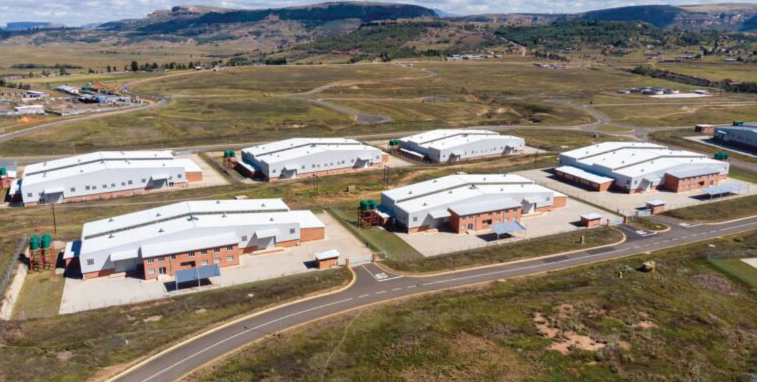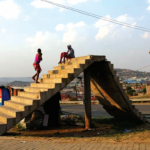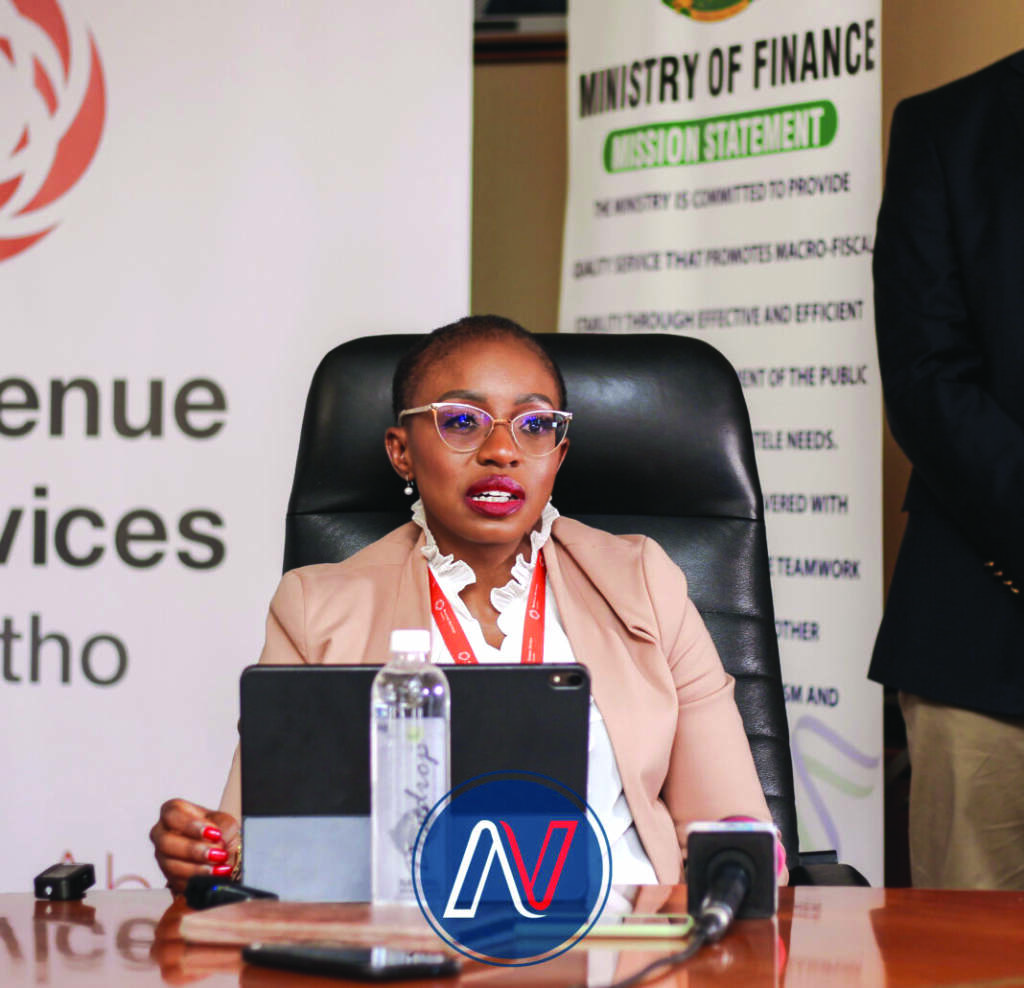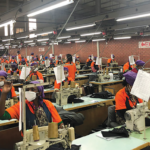… Poverty and unemployment projected to surge to alarming levels
Lesotho is on the brink of a deepening economic and social crisis, the African Development Bank Group (AfDB) has warned, as new global trade shocks and dwindling aid collide with long-standing structural vulnerabilities.
In its Lesotho Country Focus Report 2025, the AfDB paints a grim picture of the country’s economic outlook, warning that a combination of external and internal shocks could lead to spiralling unemployment, rising poverty, and social instability.
At the centre of the storm are newly imposed 30 percent United States tariffs on South African exports, which are likely to disrupt the region’s trade ecosystem.
As a member of the Southern African Customs Union (SACU), Lesotho’s economy is inextricably tied to South Africa’s, and any turbulence across the border spells disaster at home.
As a member of the Southern African Customs Union (SACU), Lesotho’s economic survival is tightly tethered to South Africa. A slowdown in South Africa’s economy, now likely in the wake of the tariffs, poses direct and devastating risks for the Mountain Kingdom.
“While Lesotho’s own tariff could potentially have a devastating impact on the economy, the broader and more significant impact stems from tariff developments in South Africa which affects all SACU members. The 30 percent tariffs imposed on South Africa could have indirect, yet substantial effects on Lesotho,” the report read.
“Most notably, the tariffs could lead to a slowdown in South Africa’s economy, reducing employment opportunities for Basotho migrant workers and leading to a decline in remittance flows, an essential source of household income in Lesotho,” it added.
The report warned that the domino effect does not stop there.
Reduced trade volumes in the region are expected to shrink Southern African Customs Union (SACU) revenue transfers, which finance a significant portion of Lesotho’s public spending.
With less money flowing into government coffers, vital social services, already stretched thin, could deteriorate further, the report warned.
“Long-term risks include deindustrialisation, a further rise in unemployment, and social instability. Poverty levels could rise, particularly in urban centres which are heavily reliant on factory employment,” it read.
But amid the grim outlook, the report identifies a sliver of opportunity. With urgent investment and policy support, Lesotho could diversify away from U.S.-dependent industries.
“Navigating these overlapping shocks will require coordinated action to stabilise the economy, protect vulnerable populations and lay the groundwork for a more diversified economy,” it read.
“The uncertainty around the AGOA expiration, combined with trade tariffs on its exports, necessitates the exploration of new markets, including AfCFTA, and the enhancement of manufacturing efficiency and value-addition in the country’s textile niche,” it added.
“Exploring bilateral agreements and upgrading logistics chains to reduce costs is equally essential,” the AfDB advised, stressing the urgent need for targeted investments.
The bank said the government should “invest in sector competitiveness, particularly in quality assurance, skills development, and logistics efficiency,” to keep apparel exports viable under increasingly unfavourable trade conditions.
It also recommended policies aimed at “supporting entrepreneurship and SME development in non-textile sectors” as a pathway to reduce the country’s structural dependence on a single export industry.
The report highlights that Lesotho’s economy has recently been rattled by several significant shocks, including “cuts in official development assistance (ODA), a 50 percent tariff on exports to the United States—temporarily reduced to 10 percent for a 90-day period starting April 9, 2025—and the cancellation of the MCC second five-year compact, a USD 300 million grant.”
These developments have compounded existing vulnerabilities such as high unemployment, and “underscore the urgent need for targeted policy responses to build resilience and support inclusive recovery,” the Bank stated.
The report was particularly damning about the suspension of U.S. assistance programs. “The suspension of key U.S. assistance, particularly the U.S. President’s Emergency Plan for AIDS Relief (PEPFAR) and United States Agency for International Development (USAID), has severely disrupted the health sector,” the report noted. This has led to “the loss of approximately 1,500 healthcare jobs and setbacks in HIV/AIDS prevention, treatment, and outreach.”
The situation could worsen as “other donors have signaled potential funding cuts,” creating further uncertainty in Lesotho’s aid-dependent health and development sectors.
The AfDB said the cancellation of the MCC compact—which was set to improve Lesotho’s rural economy through irrigated horticulture, strengthen primary healthcare, and support women- and youth-led enterprises—“halts critical infrastructure and institutional reforms,” and has “severely disrupted Lesotho’s development prospects.”
With limited fiscal space and no clear strategy to replace lost funding, the Bank warned that the situation “underscores the urgency for Lesotho to explore alternative financing mechanisms and partnerships with other development partners to avert a broader crisis.”
The Bank also painted a grim picture of the effects of U.S. tariffs on Lesotho’s textile exports. The 50 percent tariffs, imposed in the context of deteriorating trade relations, pose a major threat to the textile and apparel industry, which relies heavily on duty-free access to the U.S. under the African Growth and Opportunity Act (AGOA), set to expire in September 2025.
“Textile exports to the U.S. accounted for about 47 percent of Lesotho’s textile exports and amounted to over USD 200 million,” the Bank noted. It warned that the new tariffs could result in “a 20–30 percent decline in orders,” slashing export earnings by up to USD 60 million.
Such a shock would be “likely to push Gross Domestic Product (GDP) growth below one percent, especially if factory closures or retrenchments accelerate.”
The report cautioned that medium-term prospects depend on “the speed at which Lesotho can diversify its markets or improve supply chain efficiency.”
“If diversification efforts stall, Lesotho may face further declines in investment, factory relocations, and job losses in its already fragile manufacturing base,” the AfDB warned, adding that such a scenario would further erode the country’s tax base and deepen fiscal stress.
Lesotho’s export performance sees sharp drop in first quarter of 2025
Lesotho’s merchandise exports showed a fluctuating trend in the first quarter of 2025, with a strong start in January followed by steep declines in the following two months, the latest foreign trade data from the Bureau of Statistics (BoS) shows.
Exports jumped by 17 percent from December 2024 to January 2025, reaching M1.16 billion, driven mainly by gains in miscellaneous manufactured articles, manufactured goods, and crude materials.
However, that early momentum quickly faded. In February, exports fell by 4.8 percent to M1.11 billion, and plunged further by 16.9 percent to M920 million in March.
The largest contributor to January’s export earnings was the miscellaneous manufactured articles category, which includes textiles and clothing, rising from M407 million to a peak of M502 million in February before slipping to M475 million in March.
Similarly, manufactured goods classified chiefly by material (such as footwear and base metals) started strong at M343 million in January but plummeted by two-thirds to M115 million by March.
Crude materials, which includes items like wool and mohair, also saw a drastic drop from M154 million in January to just M46 million by March.
Food and live animals exports remained stagnant at M62 million in January and February but declined to M48 million in March. Beverages and tobacco was the only category that showed consistent growth throughout the quarter, climbing steadily from M124 million in January to M137 million in March.
The significant month-on-month declines toward the end of the quarter raise concerns about the sustainability of Lesotho’s export-led growth, particularly in the face of global market volatility, regional supply chain disruptions, and potential currency fluctuations.
These declines, occurring before April 2025 when United States President Donald Trump imposed 50 percent tariffs on Lesotho’s exports (suspended until July 31, 2025), signal deeper vulnerabilities.
The looming tariffs, even if temporarily suspended, could exacerbate these challenges, particularly for textiles and clothing, which rely heavily on U.S. markets.
Summary
- In its Lesotho Country Focus Report 2025, the AfDB paints a grim picture of the country’s economic outlook, warning that a combination of external and internal shocks could lead to spiralling unemployment, rising poverty, and social instability.
- “Most notably, the tariffs could lead to a slowdown in South Africa’s economy, reducing employment opportunities for Basotho migrant workers and leading to a decline in remittance flows, an essential source of household income in Lesotho,” it added.
- The report highlights that Lesotho’s economy has recently been rattled by several significant shocks, including “cuts in official development assistance (ODA), a 50 percent tariff on exports to the United States—temporarily reduced to 10 percent for a 90-day period starting April 9, 2025—and the cancellation of the MCC second five-year compact, a USD 300 million grant.

Ntsoaki Motaung is an award-winning health journalist from Lesotho, specializing in community health stories with a focus on sexual and reproductive health and rights, as well as HIV. She has contributed to platforms like “Be in the KNOW,” highlighting issues such as the exclusion of people with disabilities from HIV prevention efforts in Lesotho.
In addition to her journalism, Ntsoaki serves as the Country Coordinator for the Regional Media Action Plan Support Network (REMAPSEN). She is also a 2023 CPHIA Journalism Fellow.









